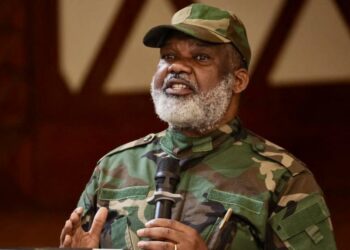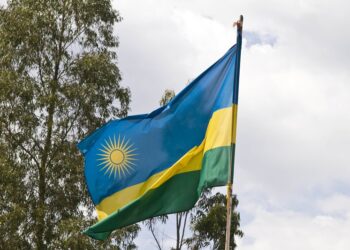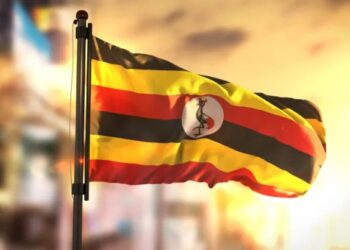West and Central Africa is home to 534 million people—half of them children (UNICEF, 2025). The World Bank notes that the subregion is rich in resources and brimming with opportunities. It has experienced high economic growth since the mid-2000s, powered by high commodity prices across natural resource-rich countries, before slowing down over the recent period. According to UNHCR, the UN Refugee Agency, political instability and armed conflict in West and Central Africa are expected to drive the number of forcibly displaced and stateless people up by 9% to 13.6 million in 2024, 8.4 million of them internally displaced. Throughout Africa, French rule was characterized by sharp contradictions between a rhetorical commitment to the “civilization” of indigenous people through cultural, political, and economic reform and the harsh realities of violent conquest, economic exploitation, legal inequality, and sociocultural disruption. At the same time, French domination was never as complete as the solid blue swathes on maps of “Greater France” would suggest.
Recently, French President Emmanuel Macron has irked West African leaders, particularly in Chad and Senegal, after lamenting that African countries “forgot to say thank you” for France’s decade-long military deployment to fight an Islamist insurgency during a meeting with French ambassadors. Alas, this follows Ivory Coast President Alassane Ouattara’s announcement that the 43rd BIMA marine infantry battalion at Port-Bouet in the capital, Abidjan, where French troops are stationed, would be handed over to domestic forces this month. With the withdrawal of its troops from the Ivory Coast, France now retains forces in Africa in only Djibouti and Gabon. In this regard, the following discussion will make readers understand the historical and ideological concept of Françafrique and why anger against France is growing in West and Central Africa today.
Françafrique and the Hidden Dynamics of French Power in Africa
After WWII, then French President Charles de Gaulle began la Francafrique, France’s informal sphere of influence in Africa. Apart from secretly vetting and backing African political elites, he also created the French colonies in the African monetary zone. These zones, which continue to exist today as the CFA, encompass 12 former colonies—Benin, Burkina Faso, Côte d’Ivoire, Mali, Niger, Senegal, Togo, Cameroon, Central African Republic, Chad, and Republic of the Congo—plus Guinea-Bissau and Equatorial Guinea. Together, they account for 14 percent of Africa’s total population, cover approximately 965,000 square miles, and represent 12 percent of the continent’s GDP. Françafrique refers to the complex system of political, economic, and military relationships between France and its former colonies in Africa, characterized by neocolonialism, paternalism, and corruption. From the time of independence onwards, Paris’ dominant presence in its former African empire has been based on three pillars. These are, namely, a network of French experts present at the state level of African countries, in financial, institutional, and educational structures. Secondly, the presence of French troops stationed in various military bases across the continent, as well as numerous French military advisers attached to African armies in senior advisory roles. Finally, a monetary pillar through the Communautés Financières d’Afrique Franc (CFA), made up of two CFA currencies. CFA is the common name for the two currencies circulating in the fourteen member countries of the zone, which is made up of two economic communities. These are the Communauté Économique des États de l’Afrique Centrale (CEEAC) and the Union économique et monétaire ouest-africaine (UEMOA), both printed by the Banque de France in Chamalières in Auvergne-Rhône-Alpes. The outer convertibility of the CFA in both communities is guaranteed by the French Treasury (Trésor public).
In addition to these, France works alongside African nations in the security and counter-terrorism fields, particularly in the Sahel region, by supporting the G5. The security of African countries is an important issue for France—since these challenges are shared, it would be unrealistic not to extend our efforts and surveillance to African countries. Peace and security in Africa are central to stability in France. Accordingly, France also contributes to African security by developing security and defense cooperation programs in a number of countries. By providing advice, training, and knowledge, it supports cooperation between African countries in fields ranging from cybersecurity to maritime piracy. An immediate An example was in 2013, when France’s then-President Francois Hollande was celebrated. in Mali for Operation Serval, a military intervention launched following a UN Security Council Resolution and a request for military assistance from Bamako that pushed back militant groups wreaking havoc in the region. Hollande touted the mission as a blueprint. for future cooperation, and the following year, the G5 Sahel—a regional security and development initiative—was established with French backing. However, aside from military partnerships, the landscape of economic and trade relations is rapidly changing in the Sahel. Geopolitical organizations like BRICS (the intergovernmental institution that includes Brazil, Russia, India, China, South Africa, Ethiopia, Iran, and the United Arab Emirates) have grown in stature and membership. China also provides an alternative trade and business partner away from Western former colonialist associates.
Impact of French Military Strategies in Africa: A Historical Perspective
The Industrial Revolution and the European countries’ need for raw materials, manpower, and markets had led them to acquire colonies in Africa, especially since the beginning of the 19th century. After the agreement of leading states on colonization in the Berlin Conference (1884), everything changed very fast. As late as the 1870s, only 10% of the continent was under direct European control. And by 1900, Europeans ruled more than 90% of the African continent. As for the French side, French West Africa was colonized between 1890 and 1914, and French-Ecuadorian Africa between 1899 and 1922. Before August 1914, no government had given serious thought to the potential contribution of French Africa, either in men or raw materials, to a war in Europe. The enormous losses on the Western Front led to the recruitment of French Africa’s first great conscript army. By the end of the war, French Africa had sent 450,000 soldiers and 135,000 factory workers to Europe.
However, since the independence of French colonies in Africa, France has maintained a policy of economic, political, and military sway dubbed Françafrique, which included having thousands of permanent troops in the region. France still has 600 troops in Ivory Coast, 350 in Senegal, 350 in Gabon, and around 1,500 in Djibouti, and has had 1,000 troops in Chad. In addition, France’s defense ministry said the role of French troops in Africa is to train local soldiers and reinforce their capacities to fight extremism, mainly in peacekeeping, intelligence, and logistics. But critics say keeping boots on the ground also has allowed Paris to retain influence and protect political regimes favorable to France. Prof. Bruno Charbonneau, from Canada’s Royal Military College of Saint-Jean and an expert on peace and conflict interventions in West Africa, agrees: “The French military presence in Africa has also always allowed France to be at the heart of conflict resolution and management mechanisms in French-speaking Africa, particularly at the UN Security Council,” he says. Giving military support to friendly African regimes in this manner has meant France can project and protect its own interests and mount rapid armed interventions, he adds.
Ultimately, France has successfully used its security presence since decolonization to exert influence in countries where it has interests, maintaining both regional hegemony and its vision of order and stability. While that strength is still potent, strategic rationales for maintaining substantial presences are weakening, and, in addition to wary French and African public opinion, recent initiatives by the African Union also threaten to further weaken France’s interventionist reflex, such as the 2004 creation of the Peace and Security Council and its African Standby Force to—supposedly—allow Africans to intervene in their own affairs. Today, some former French colonies in Africa, such as Burkina Faso, Mali, Guinea, Niger, and Gabon, are fast gaining notoriety for military coups as people are losing hope in democracy in Francophone Africa, and since 2020, anti-French sentiments seem to have triggered some coups. Experts blame the worrying trend on high levels of poverty, poor governance, ineffective civil society, and, above all, excessive French influence, and these coups show changing ties with France.
The Growing Movement to Dismantle Françafrique
In 2021, Christophe Bigot, Africa and Indian Ocean Director at the Ministry for Europe and Foreign Affairs, explains the challenges for French diplomacy in Africa. He said, in many respects, France’s present and future are closely linked to those of Africa. However, increasing anti-French sentiments in former French colonies have seen France suffer diplomatic blows across the West and Central African region as its once-influential “Francafrique” sphere rapidly shrinks. Many governments and citizens, especially in the military-led countries of the Sahel, detest France’s real and perceived political interference in their countries. They see France as paternalistic for its deep involvement in sectors like mining and for its inability to decisively halt the spread of armed groups, despite thousands of French soldiers stationed in the region. Despite the move toward multilateralism, France hasn’t fully abandoned its traditional bilateral structure. According to Radio France International, France has yet to officially revise or renegotiate the secret and public defense treaties signed with a select number of African countries. Critics charge that France uses this secrecy, as well as ambiguous definitions of what defines internal or external threats, to intervene according to its own interests.
Mali, Niger, and Burkina Faso are all currently led by military juntas, following a series of coups across Africa’s Sahel region since 2020. This wave of military takeovers has earned the region its reputation as the “coup belt” and has drawn widespread international condemnation about the erosion of democratic governance. Yet, the coups and their military leaders are supported by many citizens within these countries who see them as liberating forces. While pushing out former Western allies, the military leaders in Burkina Faso, Niger, and Mali have increasingly pursued security and economic ties with Russia. Based on a report from Bismarck Analysis, local military commanders have used the power vacuum created by the French pullback to overthrow their civilian leaders. Bismarck Analysis was founded in 2017 to help companies, governments, philanthropists, and investors better understand the world. The report further noted the interest of other major players like the United States and, surprisingly, Russia in Africa. As reported by Al Jazeera, by January 2025, six African countries—Mali, Burkina Faso, Niger, Chad, Senegal, and Ivory Coast—had cut military ties with France. However, Wagner’s operations in several African nations, such as Mali, have drawn criticism, with human rights groups accusing its forces of severe abuses. Wagner forces have also reportedly arrived in Equatorial Guinea, where they are tasked with protecting its authoritarian leader, President Teodoro Obiang, mirroring the activities of the Russian mercenaries in the neighboring Central African Republic, where they have evolved into the dominant foreign force.
In the medium term, the withdrawal of French troops is likely to destabilize the region, alter power dynamics, and open opportunities for non-Western actors. The long-term impact will depend on the ability of regional powers, international organizations, and emerging global players to fill the void left by France. To the contrary, analyst Shaantanu Shankar of the Economist Intelligence Unit argues that it is impossible to say whether the departure of French forces led to the increased violence, but it did create a “huge security vacuum,” one that cannot be filled by Russia. Troops from the Russian private military company Wagner are being financed by the junta governments with fewer financial resources, he added. While many analysts argue that the decision of Senegal, Chad, and Côte d’Ivoire to end military relations with France, although under very different circumstances, is political, especially with the growing sentiments across borders. They argue that pandering to populism could give some sense of legitimacy to governments, especially in the case of Côte d’Ivoire, whose election is in nine months. In addition, having seen the outcome of anti-French sentiments in other countries, incumbent governments loathe losing their political powers and are doing what they can to keep them. In conclusion, the West and Central African nations military arrangements with France are failing due to their historical antecedents, the emerging world order, and the multidimensional challenges in the region during this time.



























































